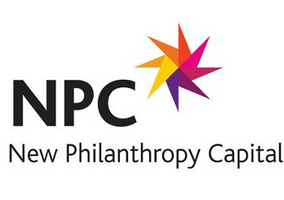Covid-19 has accelerated a digital evolution with the charity sector, according to a report published today.
The 2020 Charity Digital Skills Report provides insights into how UK charities have adapted to Covid-19.
Between March and May, the authors heard from 429 charity professionals about how they are using digital and what this means for trends around skills, governance, leadership and strategy across the sector.
This year's report finds that the pandemic is the biggest cause of digital disruption in the sector this year. Covid-19 has pushed charities to “embrace digital with the aim of staying relevant, helping more people, developing new ways of working, fundraising and delivering service offerings”.
Before Covid-19, 30% felt that a lack of understanding and buy-in for digital from trustees was one of their biggest internal barriers. For those responding post-Covid-19, this had decreased to 15% of respondents.
Post-Covid-19 is defined as 20 March 2020 onwards, as that was when the government announced the closure of schools and shops.
More than half of charities do not have a digital strategy
The report finds that just over half of the charities that responded, 51%, still do not have a digital strategy. However, 39% have an organisational strategy that includes digital, or a digital strategy, and it’s a priority for them.
Half of the charities cited lack of funding as the biggest barrier they face to digital progress, and 48% of respondents said that their charities have not accessed any digital funding over the last year.
Most charities, 66%, rate their board’s digital skills as low or having room for improvement, down 2% from 2019. Only 4% are investing in digital training for trustees, down from 7% last year.
Baroness Barran, minister for civil society, said: “The annual Charity Digital Skills report continues to provide invaluable insights into the sector’s evolving uptake and engagement with the opportunities that digital provides – something that nearly all of us have experienced recently. Coronavirus has fundamentally transformed charities' daily operations and the need to offer digital alternatives for everything from services to fundraising, which has proven important now, more than ever.
“Over the last few months, charities and wider civil society have worked tirelessly in their efforts to support vulnerable people and communities, and the sector has proven to be one of our greatest strengths. Boosting digital skills and capability will be central in bolstering the resilience of the sector through recovery as civil society continues to play a vital role in helping tackle the challenges and opportunities that lie ahead.”
Decline in respondents reporting a need to improve diversity
Some 25% of respondents said that they need to improve diversity amongst staff with digital responsibilities. This has declined from 41% last year.
Zoe Amar, founder of Zoe Amar Digital, said: “Our report reveals many charities have built up significant momentum around digital change during the pandemic, and boards, in particular, have had to behave in an agile and responsive way. Could this approach be helpful in tackling the sector’s ongoing challenge with diversity and be the catalyst for change?
“In my personal opinion, with regards to diversity – like digital – any organisation worth its salt will continually strive to do better, so the fact that it has declined as a priority is a concern, especially considering existing sector data.
“User research and user testing needs to prioritise diversity and accessibility. This should also help charities to develop better digital services, which is an additional skills gap. Getting leadership, trustees, skills and the right strategy working in tandem are the key factors that will unlock potential.”
Related articles












